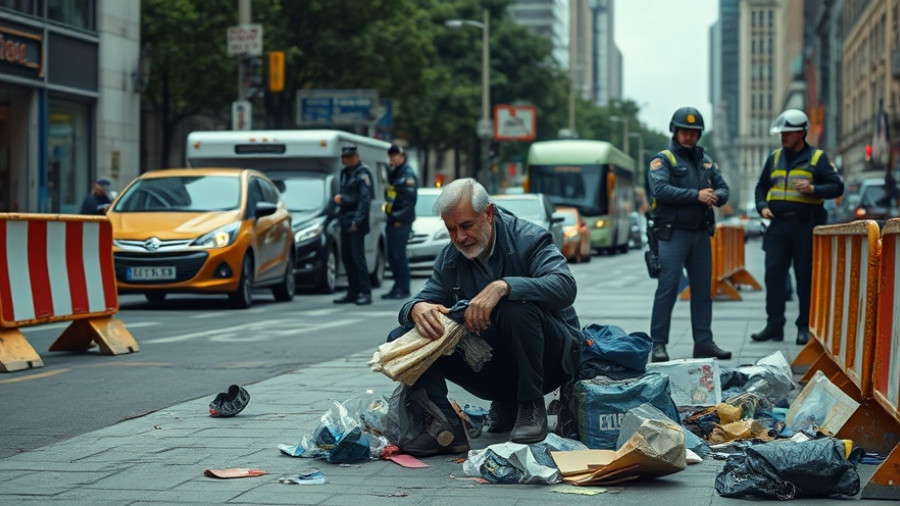
How Trump's Homelessness Order Could Impact Healthcare and Local Policies
The homeless crisis across the United States has ignited fierce debates regarding the best approaches to address the growing challenges faced by unhoused individuals. Recently, President Trump's executive order aimed at curtailing homelessness has raised concerns among local officials, health care providers, and advocates, particularly regarding its potential to negatively impact San Francisco's healthcare facilities and jail systems.
The Strains on San Francisco's Emergency Services
San Francisco's emergency rooms are already grappling with significant strain as they serve increasing numbers of individuals experiencing mental health crises, with many unhoused individuals waiting days for a bed in psychiatric facilities. The new executive order pressures local governments to crack down on homelessness to secure federal funding, which could rapidly escalate the number of individuals funneled into emergency care and jails.
Chris Domanski, a healthcare worker, emphasizes that the situation could worsen, stating, "The American system of emergency departments is already facing so much overflow. It’s just gonna absolutely worsen that." Given that federal funding for permanent supportive housing is set to be drastically reduced, many fear that homeless individuals will face harsher conditions with no increase in available resources.
The Shift from Housing First to Punitive Policies
Experts warn that the order's direction to expand involuntary commitments and eradicate harm reduction practices will revert the progress made over the past few decades. The "Housing First" model, which has been the standard for California homelessness policy, prioritizes placing individuals in permanent housing without prerequisites like sobriety or psychiatric treatment.
Currently, many advocates and service providers argue that treating homelessness through punitive measures, such as criminalizing public camping and mandating treatment, will push individuals further into cycles of incarceration and emergency care. Vanessa Rancaño of KQED notes that while California has made strides with supportive housing policies, Trump's order poses a serious threat to these values. "It could jeopardize years of work dedicated to helping those in need." The debate around Housing First is not merely about where individuals sleep, but whether housing should be treated as a human right or as a reward for compliance with treatment.
The Economic Burden of Inaction
Beyond moral and ethical considerations, there are pressing economic implications. Each individual who cycles through jails, emergency services, and shelters imposes substantial costs on public resources. Programs like the Veterans Affairs Supportive Housing (HUD-VASH) demonstrate that supporting individuals with secure housing leads to reduced reliance on emergency care, proving more effective in the long run.
Potential Outcomes and Responses from Local Officials
Local responses to Trump’s order remain uncertain, with city officials weighing their options. As pressures mount for compliance with the executive order, state leaders are also attempting to balance their stance. In California, Governor Gavin Newsom has previously aligned with some of Trump's punitive measures, but he has distanced himself post-order, asserting that his approach has always leaned toward providing resources rather than threats.
Actionable Insights for Residents
For those concerned about these rapid changes in policy and their local effects, engaging with community organizations and local leaders can be crucial. Advocates emphasize the importance of ongoing support for funding initiatives that align with housing-first practices, promoting long-term behavioral health solutions, and maintaining community safety nets.
Conclusion: The Need for Compassionate Solutions
As the situation develops, it is essential for residents and stakeholders to push for compassionate, equitable solutions that address the root causes of homelessness and uphold the rights of unhoused individuals. Rethinking how society supports its most vulnerable members will be critical in shaping policies that balance the needs of local communities without further exacerbating injustices.
 Add Row
Add Row  Add
Add 




Write A Comment